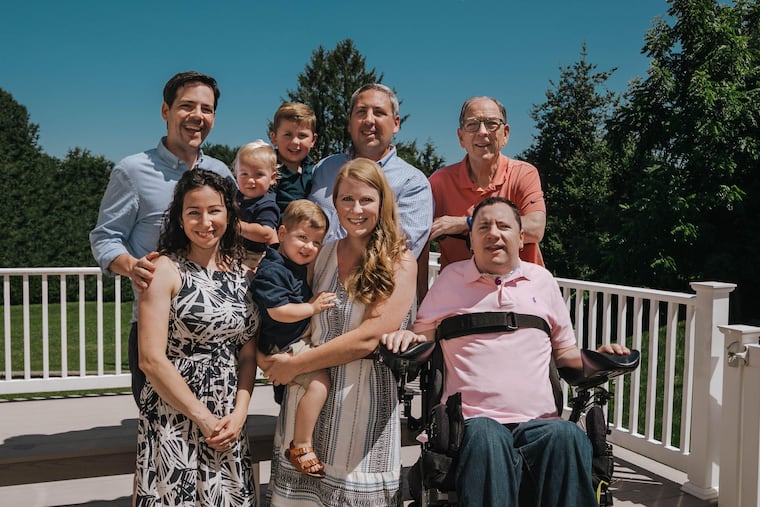My brother was paralyzed by gun violence. My father stepped up.
Our dad put his life on hold for Kevin. He and other caregivers are unsung heroes in our country and community.

Twelve years ago, my brother was shot and paralyzed in an attempted armed robbery in Philadelphia. Like many victims of gun violence, his day-to-day life changed in ways that are hard for most of us to fathom. He couldn’t breathe or move on his own because his spinal cord was shattered by the bullet. All of a sudden, my fiercely independent and free-spirited brother had to adjust — not only to survive, but to thrive.
And thrive he did.
Kevin died in February. But in his time with us, he made it clear that he would not be defined by his injury. Far from it. His resilience, optimism, and unique ability to light up a room by sheer force of his personality inspired so many that he knew — and beyond.
But Kevin knew he needed help, which he accepted with grace. Kevin would often tell me how, despite his injury and how frustrating his daily grind could be, he was one of the lucky ones. So many victims of gun violence in Philadelphia are shot and forgotten, left without the support they need to lead full and healthy lives. Kevin knew he was fortunate to have support from his community, a safe place to call home, and a devoted primary caregiver — our dad, Joe.
Caregivers are unsung heroes in our country and community. The number of caregivers is large and growing, especially with an aging population. There are approximately 38 million caregivers in the United States, providing an estimated $600 billion in unpaid care. In Pennsylvania, 1 in 5 adults are family caregivers, doing this silent, unpaid work.
Our dad put his life on hold for Kevin. He served as Kevin’s nurse to fill uncovered nursing shifts — an increasingly common dynamic with the onset of the pandemic. And Dad got Kevin out of the house, helping him do what he loved most: seeing the people who gave him joy.
Kevin also knew he was the beneficiary of advocates who came before him. Thirty-three years ago this month — when Kevin was just 6 years old — President George H.W. Bush signed into law the Americans with Disabilities Act (ADA). Completely unbeknownst to us in our Delaware County childhood, this monumental legislation would prove tremendously consequential to Kevin’s quality of life.
We all know ADA. We see curb cuts and doors that are wide enough for those in wheelchairs (although sometimes just barely). That accessibility — albeit imperfect — led to countless lunches and nights out at Kevin’s favorite spots.
ADA was even more meaningful in ways that are not so visible to the public. The civil rights guaranteed by ADA set the stage for Kevin to receive care at home, much closer to the family and community he loved, instead of being confined to a nursing home.
But this work is unfinished. The spirit of ADA holds promise to change how society approaches the 61 million Americans who live with disabilities — people whose potential is limited not by their spirit, but by the way our society treats them.
It is my hope that we are experiencing a similar movement toward a new approach to caregiving that will pay dividends for countless families. We need to raise the bar for the workers who provide the meaningful, dignified care that millions of us need now — and the rest of us will need in the future.
Investing in caregiving is important not only for the most vulnerable, but also for the millions of families — including parents of young children — who need reliable, affordable care to contribute to our economy. As U.S. Sen. Bob Casey has noted, “The bridge to work for many is someone who can come into their home and care for aging parents. For others, it’s quality, affordable child care for their kids.”
My brothers and I were raised to treat others as we expect to be treated. Let’s carry the torch of ADA for the next generation, both for people with disabilities and those who care for them, creating policy that treats people with dignity, opens doors, and enables everyone to live up to their full potential. We’ll all be better off when we do.
Chris Neary is the brother of the late Kevin Neary and a resident of Wilmington.